Create a campaign
UpdatedCampaigns are automated workflows that send people messages and perform other actions when people meet certain criteria. This page takes you step-by-step through creating a campaign from scratch.
New to campaigns?
Check out campaign concepts & settings to get started.
Here’s a brief video showing the main components of our campaign builder.
And here’s a walkthrough on creating an onboarding campaign!
Before you begin
Before you begin, determine the purpose of your campaign. This will help you define the trigger and goal of your campaign. Are you trying to reach people who have just signed up? Are you interested in notifying people about changes to accounts they manage? Or maybe you want to promote a new feature in your product?
Check out our recipes to see if we’ve covered your use case!
Create a campaign & set a trigger
To create a campaign from scratch:
- Go to Campaigns. Then click Create Campaign.
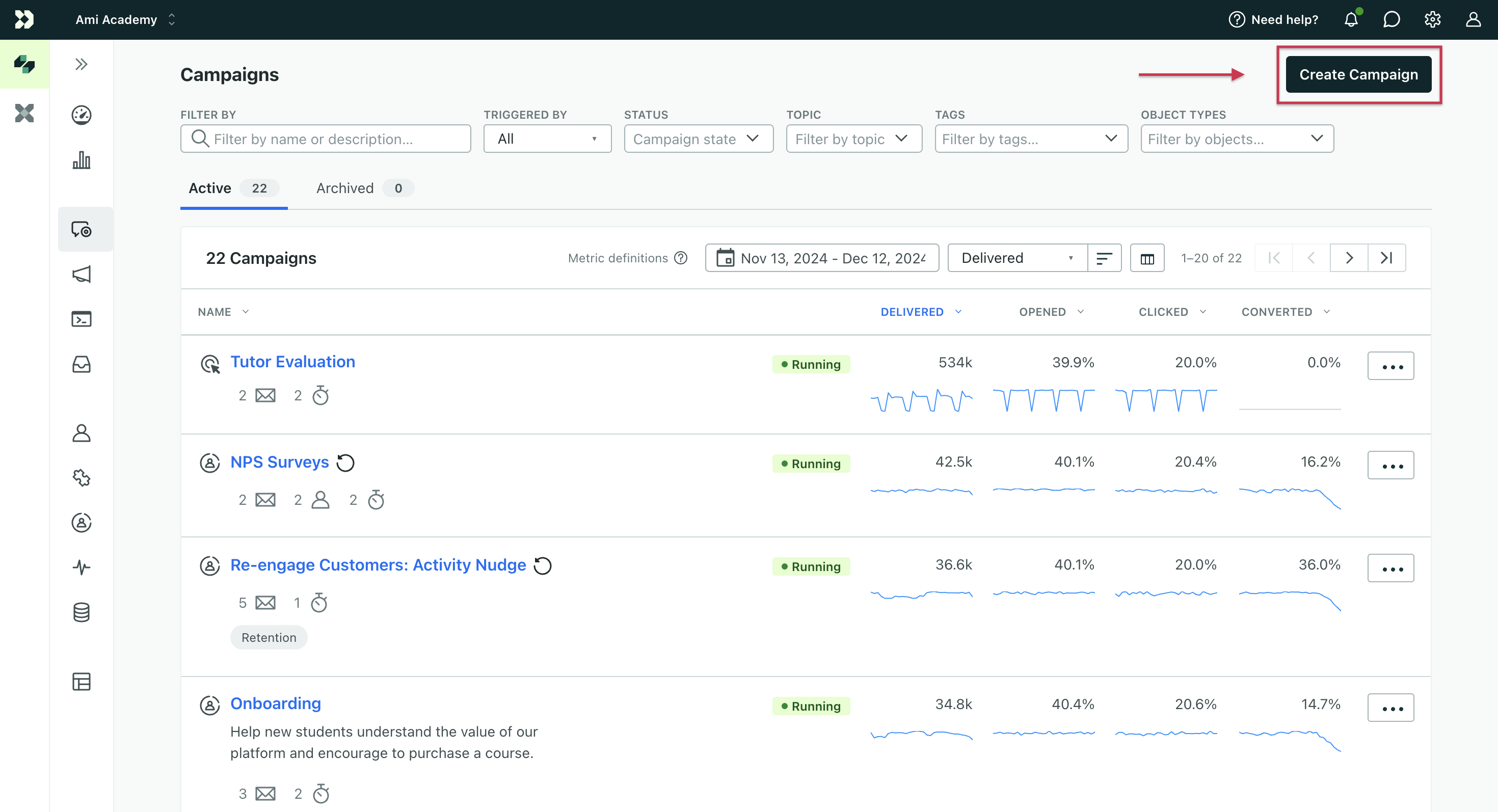

- Click Choose trigger on the canvas.
- Select a trigger type.
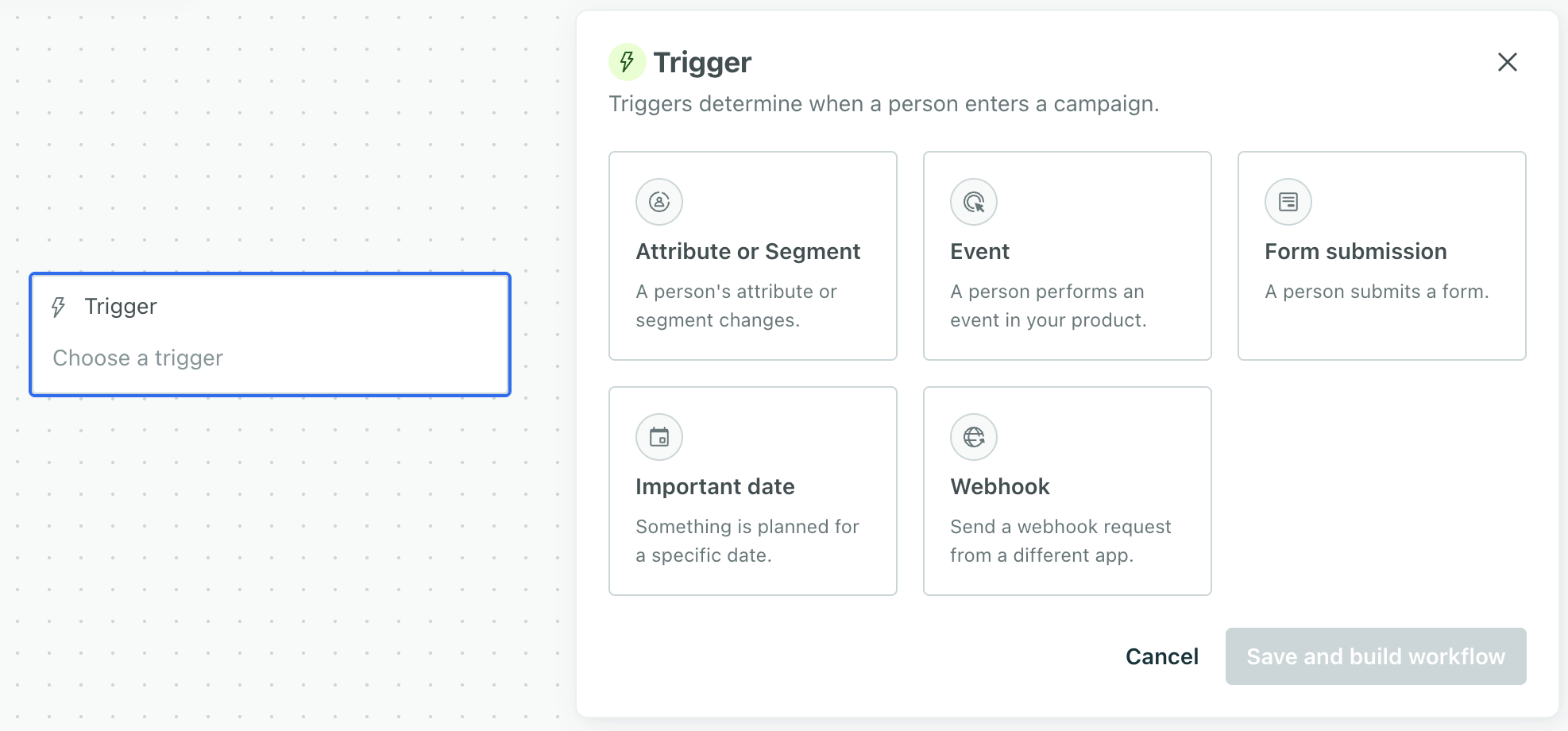
 Our most popular trigger is Attribute or Segment; it’s how you trigger campaigns based on a change to a person’s profile. After you save this trigger, you can change how often your audience enters the campaign through the frequency setting.
Our most popular trigger is Attribute or Segment; it’s how you trigger campaigns based on a change to a person’s profile. After you save this trigger, you can change how often your audience enters the campaign through the frequency setting.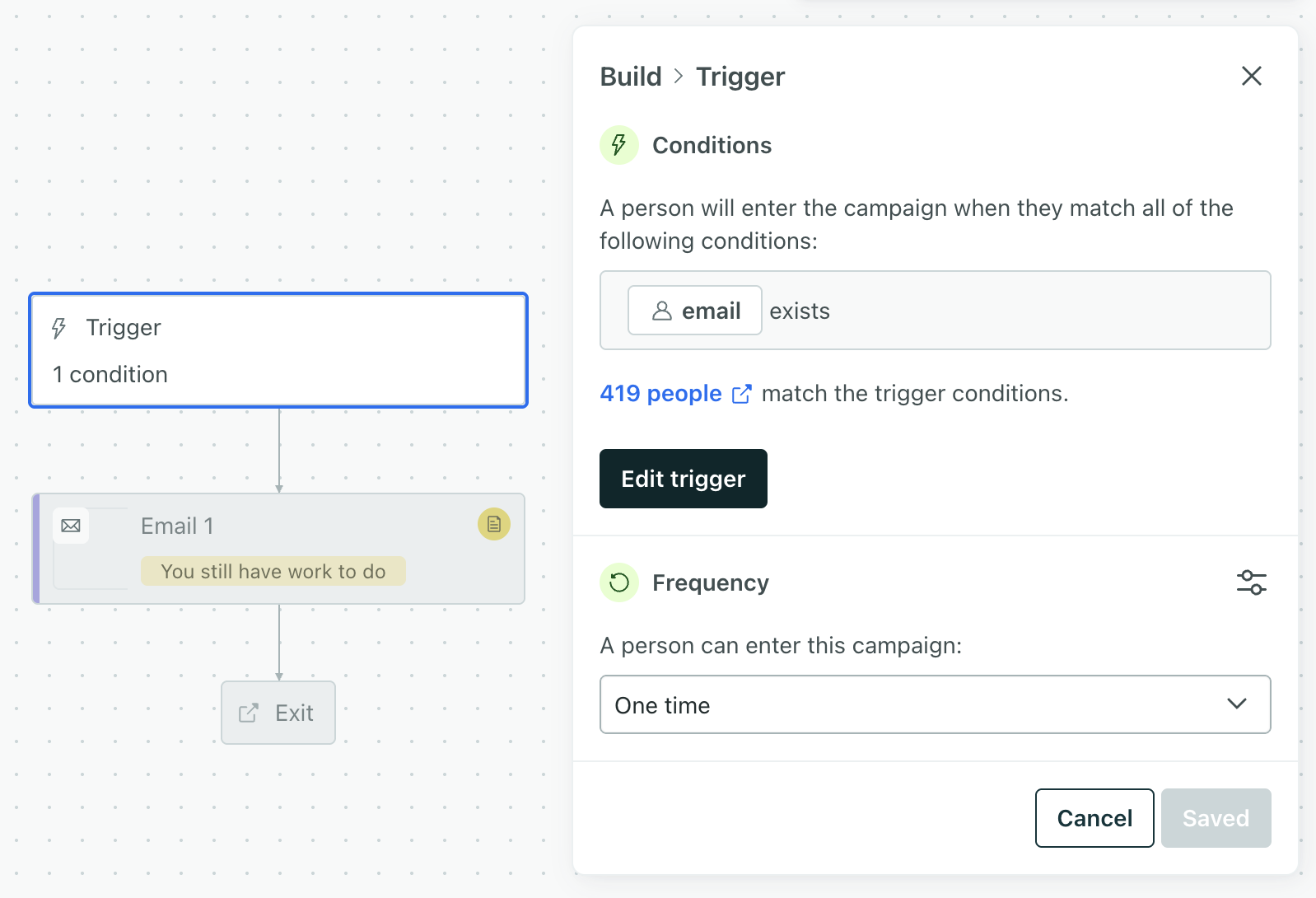

After you save your trigger, you can’t change the type
You’ll be able to change the conditions, but not the trigger type; you’ll have to start a new campaign if you need to switch types (like from Attribute or Segment to Event).
Configure campaign settings
Configure the campaign’s settings so you can:
- Easily identify the purpose of the campaign through the name, description, and tags
- Track the success of the campaign through a goal
- Limit who receives messages through subscription preferences
- Determine whether people exit early through exit conditions
Check out this walkthrough on configuring these settings:
- Click “Untitled” in the top left to change the name so your team members can easily find the campaign on the landing page.
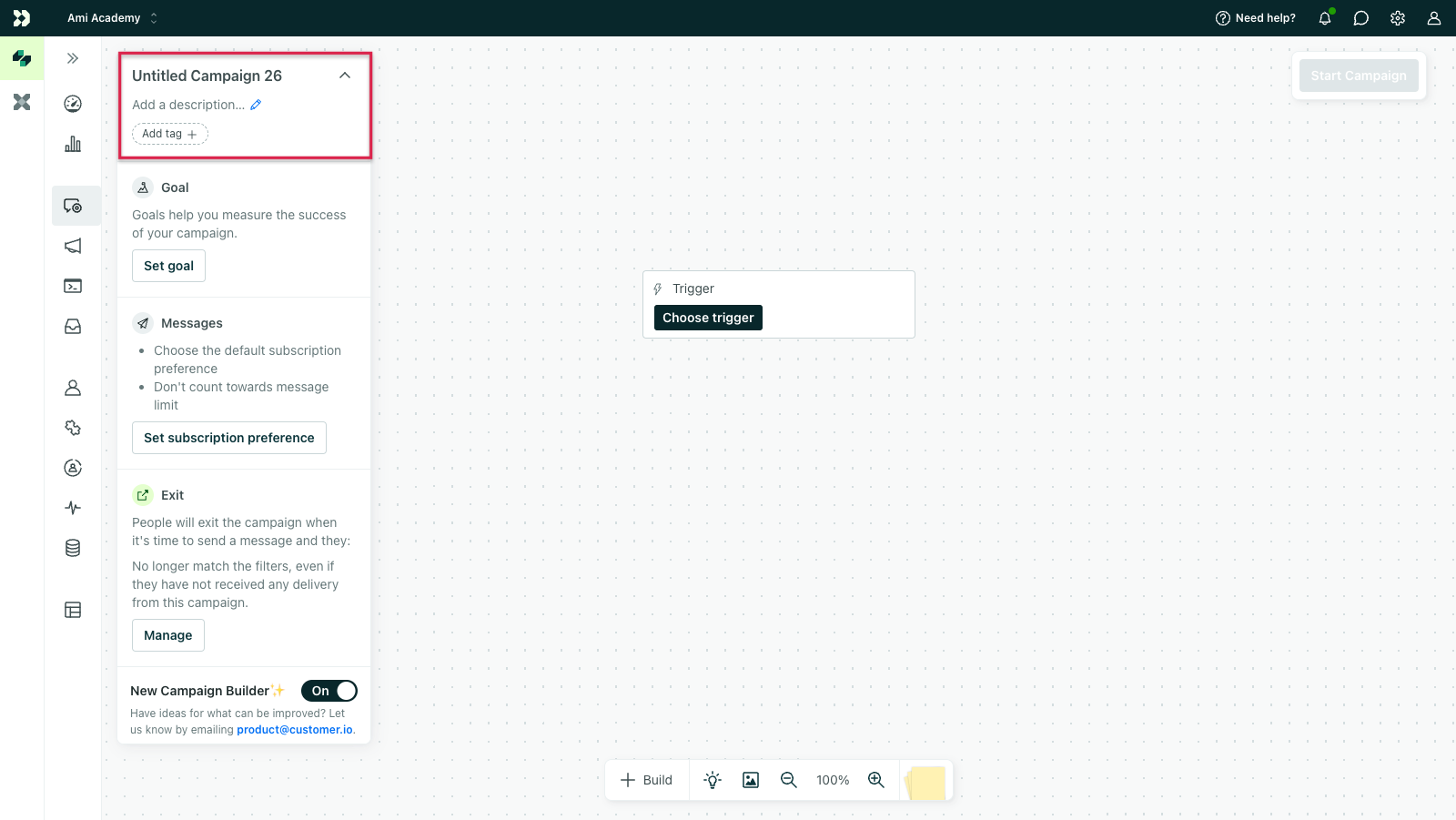

- (Optional) Add a description so your team members can tell what the purpose of the campaign is.
- (Optional) Add one or more tags to help you organize and filter your campaigns on the landing page.
- Click the top-left block then Set goal. You can choose “No goal” if you don’t want to set one up. This image shows the goal is achieved when a person performs the eventSomething that a person in your workspace did. Events can trigger campaigns, add people to segments, etc, and you can use properties from events to personalize messages.
profile_setup_completewithin 1 week of being sent any delivery from this campaign.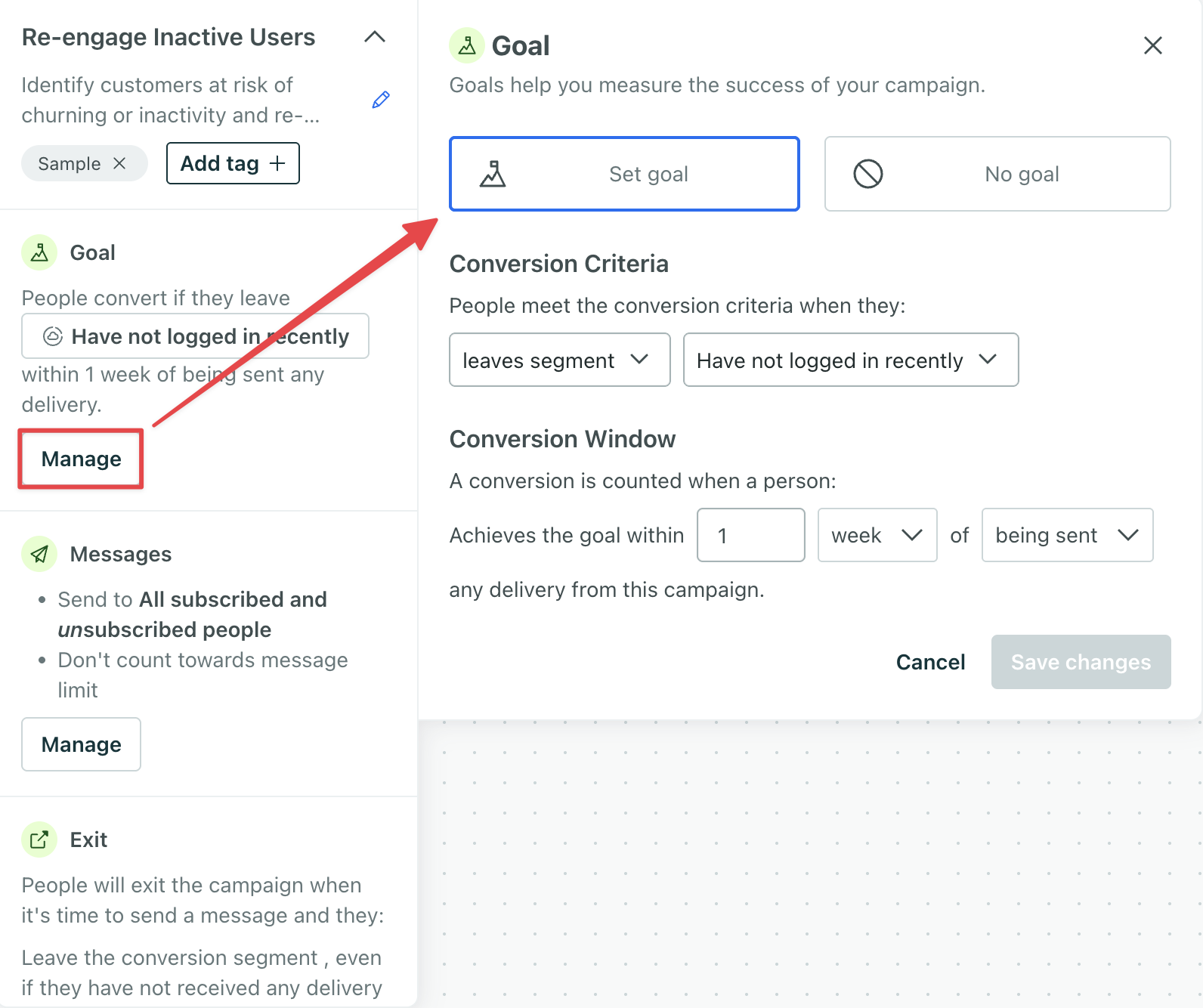

- Modify your Message settings. Click Manage under Messages to change what subscription center topic people must be subscribed to to receive messages. If you don’t have the subscription center enabled, we’ll send to people who are globally subscribed. Set a message limit if you want people to only receive a certain number of messages from you over a period of time.
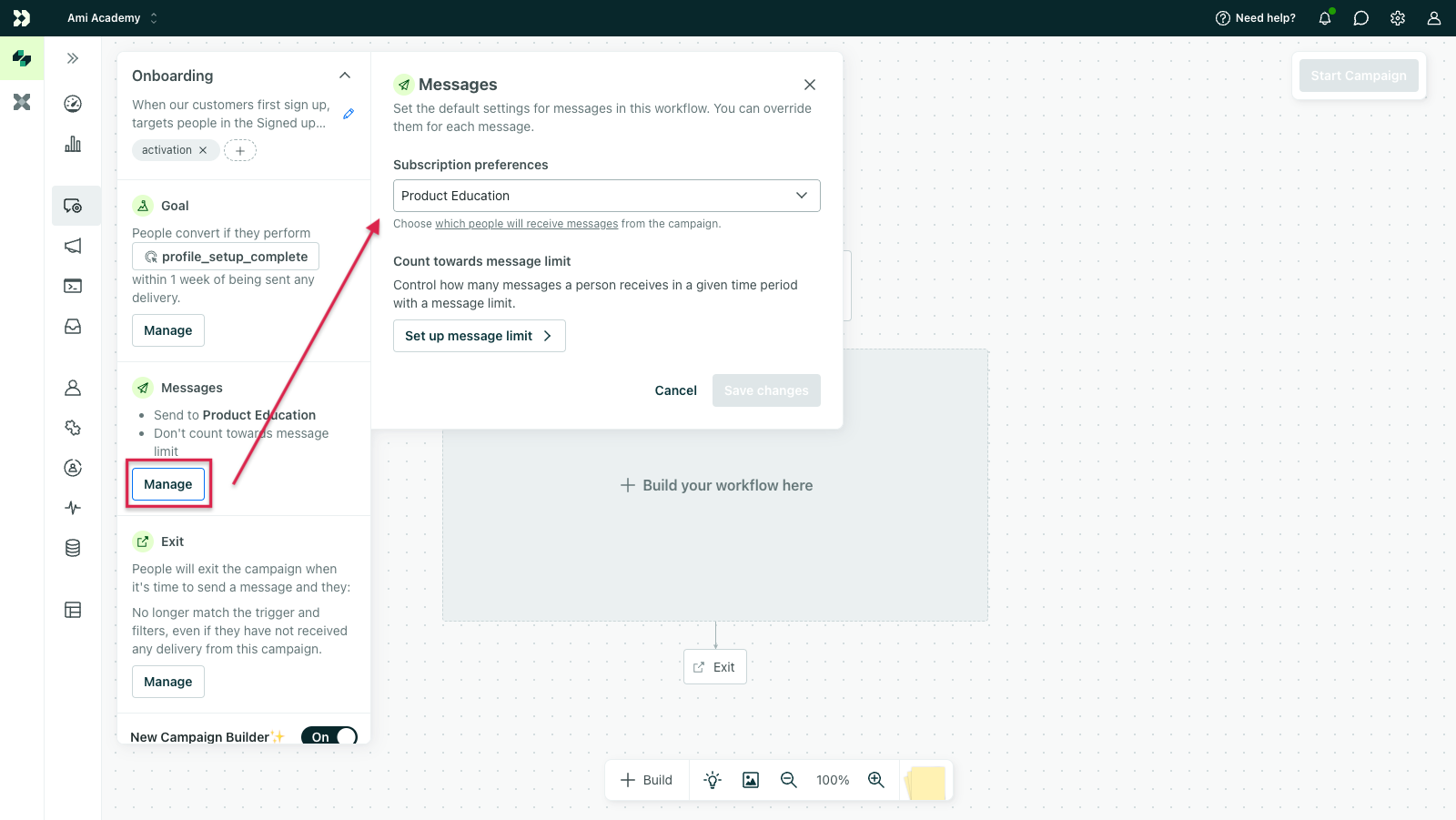

- Click Manage under Exit. You can change when people exit early or prevent them from exiting early here.
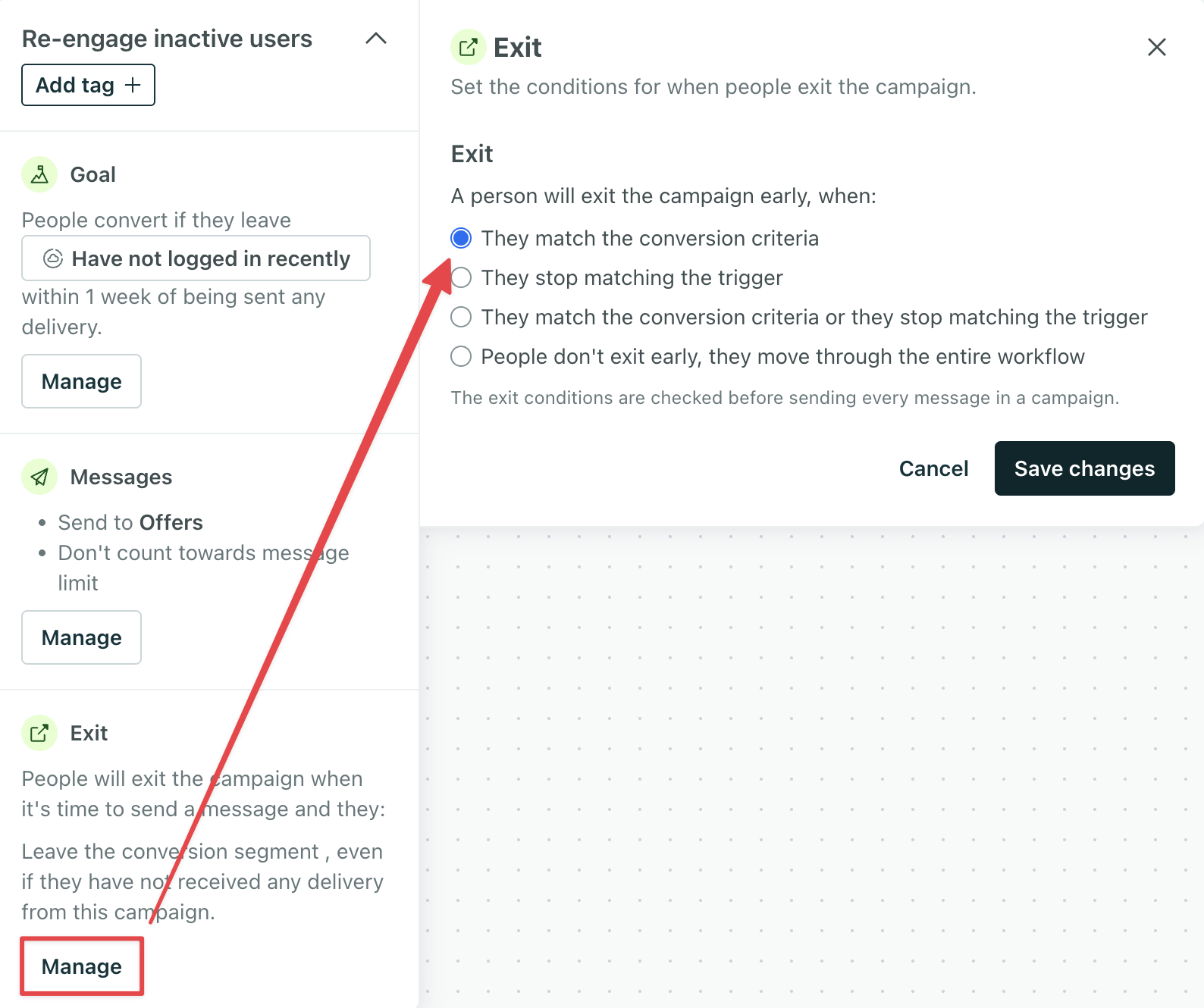

Build your workflow
Build the workflow that people will follow after triggering the campaign. When a person moves through a campaign, we call that a journey.
Click Build at the bottom of the workflow. Click and drag a message, data, delay, or flow control block from the panel onto your canvas. After you add your first block, you can drop subsequent blocks over any plus sign.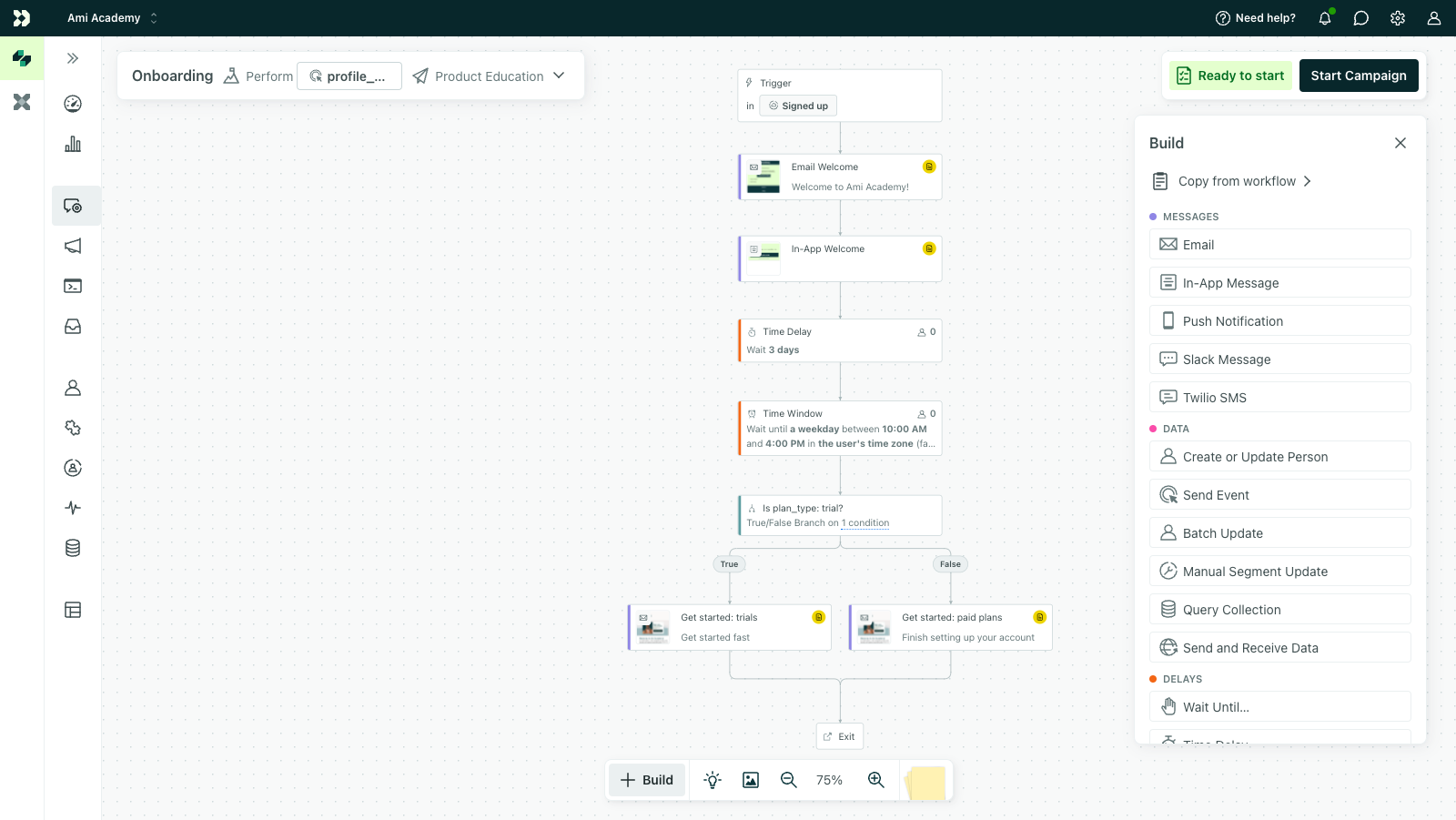

Here’s a walkthrough of setting up an email in a campaign:
Shortcuts & useful features
At the bottom, hover over the lightbulb icon to learn keyboard shortcuts, export a picture of your workflow to share with team members, zoom in and out, or add sticky notes to inform team members of important details.
Review & start your campaign
Before you start your campaign, you likely want to change the Sending Behavior for all your messages from Queue Draft to Send Automatically.
By default, all messages are set to “Queue draft.” This means you have to manually send them after people reach your message block in the workflow. If you want messages to send automatically, click into each message and adjust the dropdown: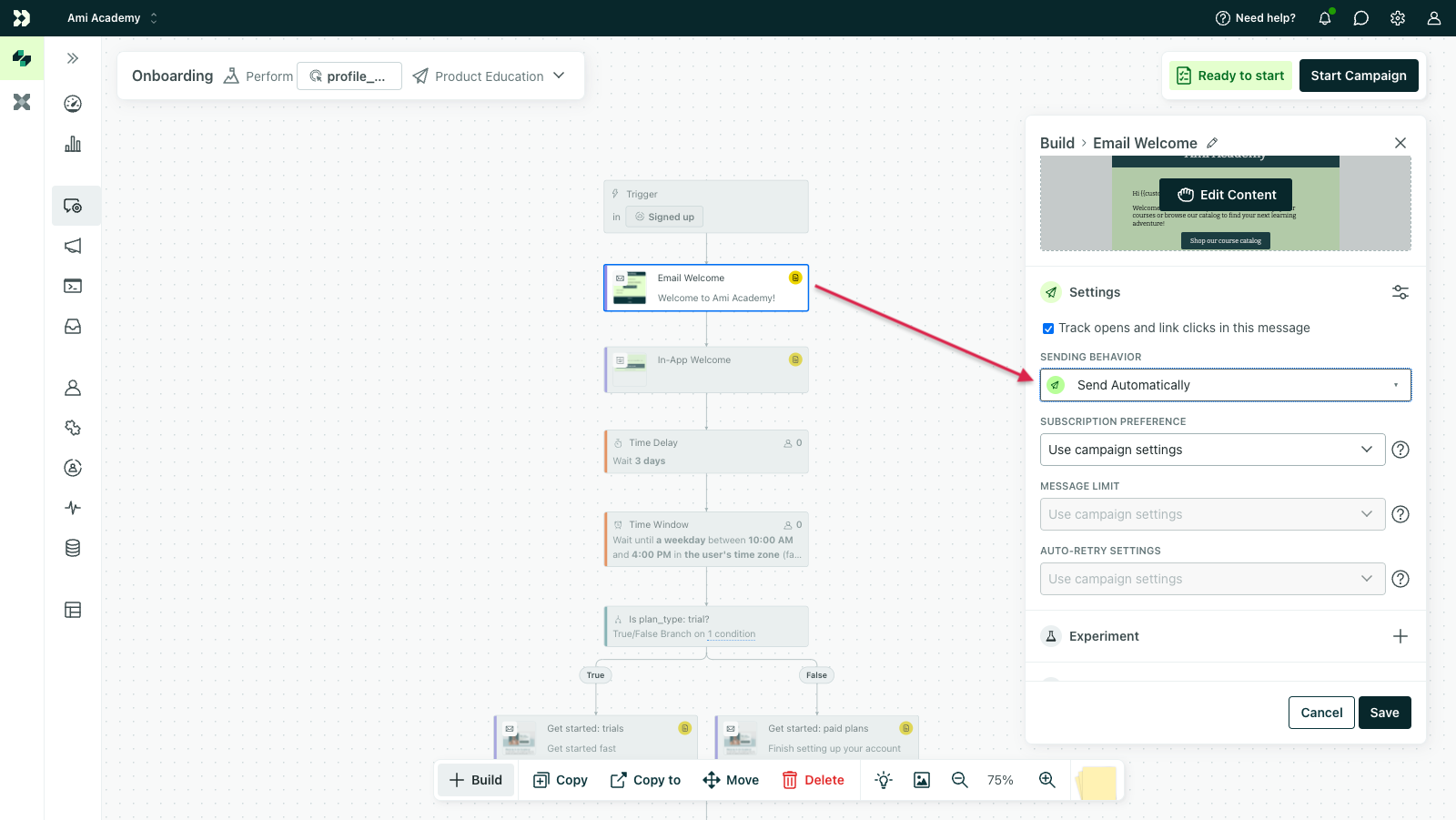

After you’re finished building your workflow, click Start Campaign. If you haven’t fully set up your campaign, click Review items and complete setup.
- Depending on the type of campaign you’re making, you may need to specify whether you send to all people who meet your conditions or just people added to your workspace after you start the campaign.
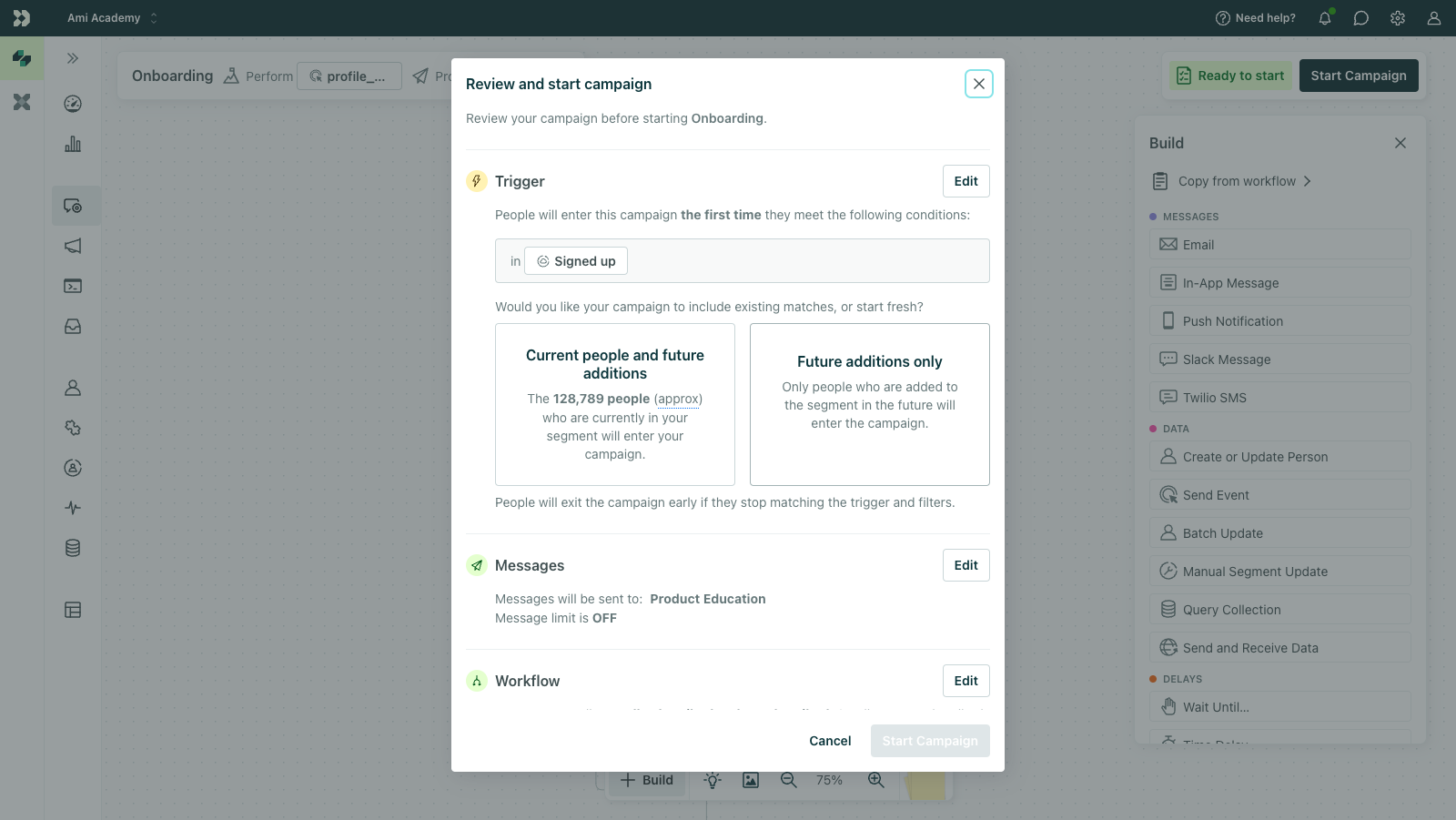

- Click Start Campaign.
Congrats! You created a campaign from scratch! You’ll land on your campaign’s overview page where you’ll see a breakdown of metrics, drafted messages, sent messages, and all of your customers’ journeys through the campaign.

